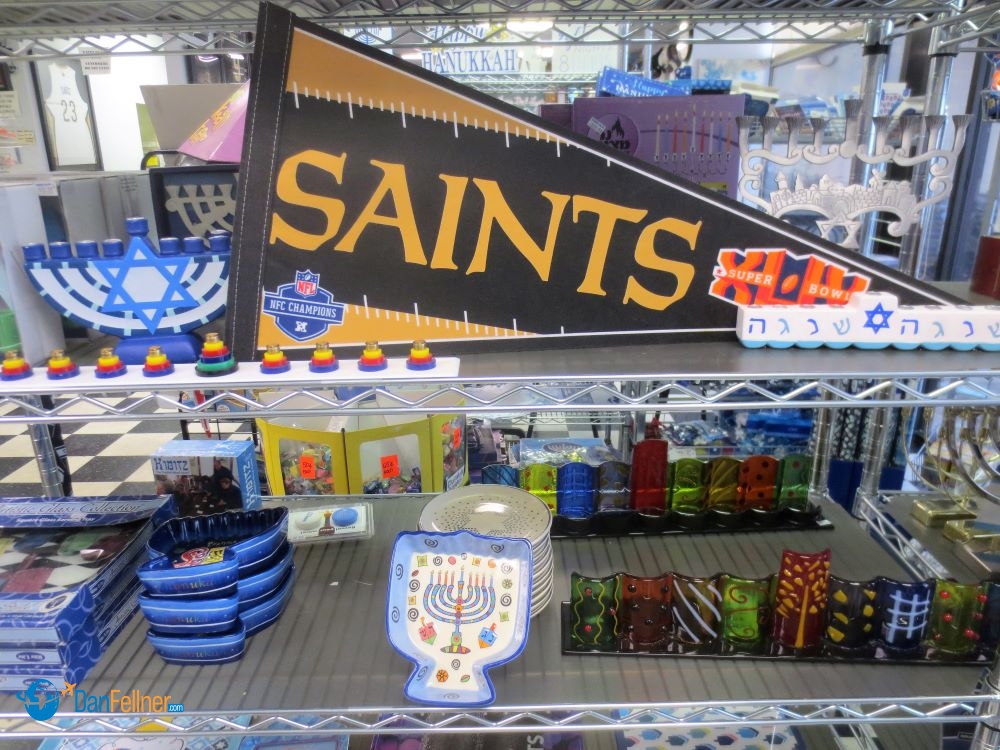‘The Big Easy’ is home to a unique and surprisingly vibrant Jewish community
Aish.com — January 6, 2019
NEW ORLEANS — A “po-boy shrimp” sandwich, chicken jambalaya, and red beans and rice with sausage aren’t items you’ll typically find on the menu at an authentic kosher delicatessen.
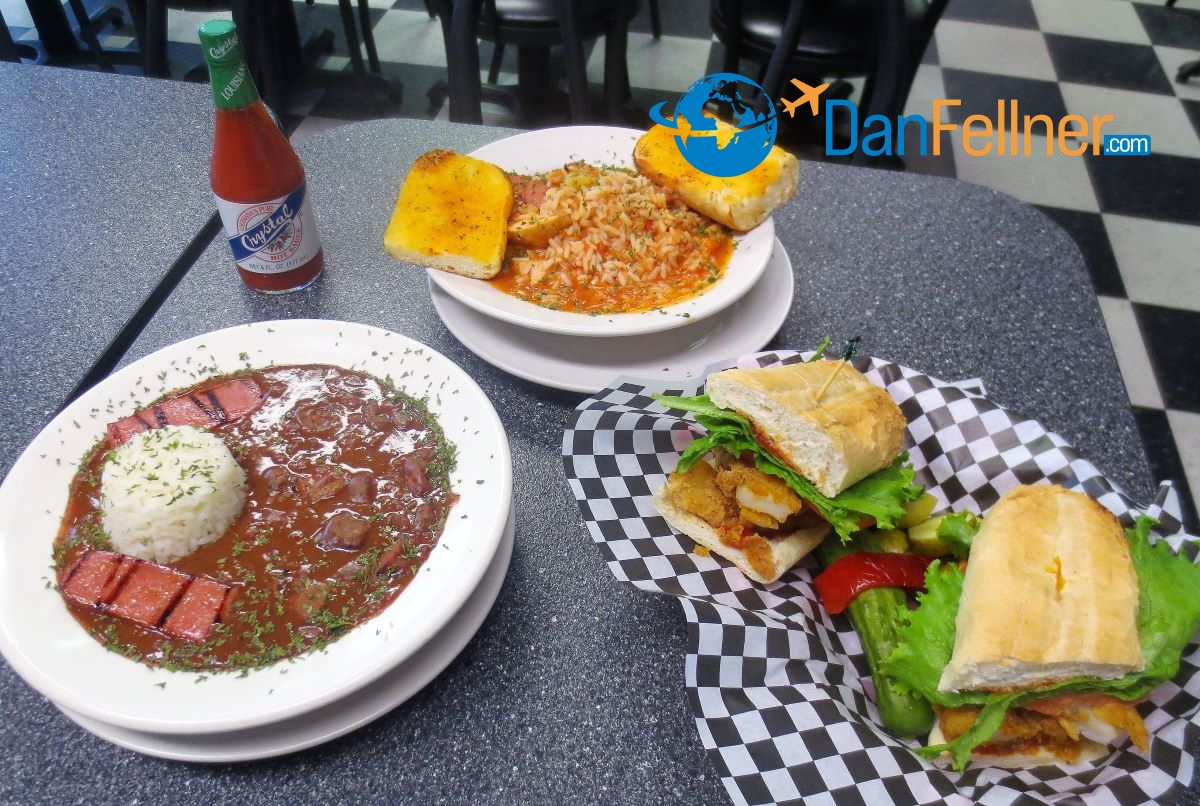
“New Orleans Favorites” served at the Kosher Cajun Deli in Metairie, La.
But at the Kosher Cajun Deli and Grocery in Metairie, La., a suburb of New Orleans, these are popular dishes, along with more traditional deli staples like corned beef, chopped liver, potato knishes and bagels and lox.
Welcome to Jewish life in a city known as “The Big Easy,” where Jews have carved out their own colorful and unique traditions and thrived for centuries in the Deep South, a part of America where many other Jewish communities have struggled to maintain their religious and cultural identity.
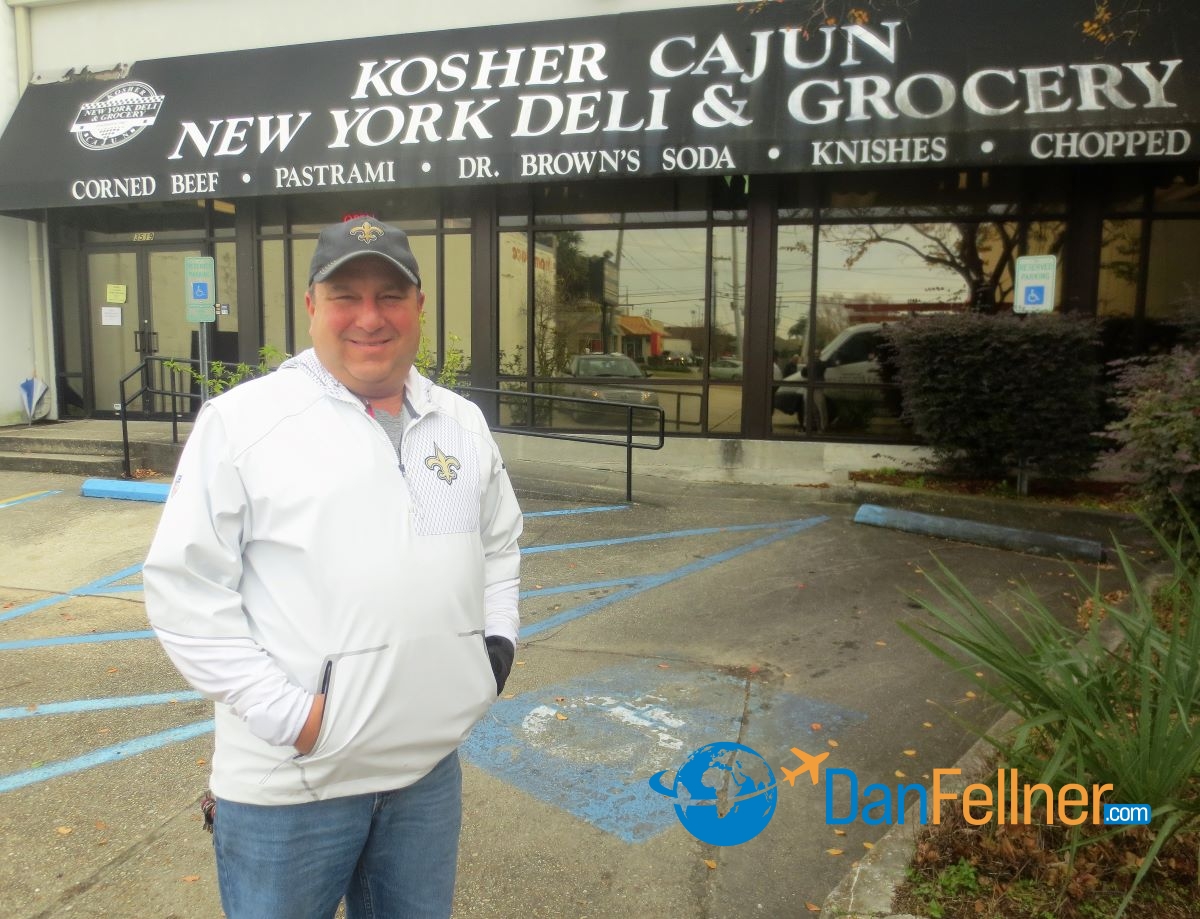
Joel Brown, owner of the Kosher Cajun Deli & Grocery in Metairie, La.
Indeed, the New Orleans metropolitan area is home to nine working congregations and about 11,000 Jews, a number that has tripled since Hurricane Katrina decimated the city in 2005. I recently spent a weekend in this city of about 1.4 million people, before boarding the American Duchess, an old-fashioned paddlewheel boat for a week-long cruise on the Lower Mississippi River.
Before boarding the Duchess, I had a wonderful lunch at the Cajun Deli in Metairie with the restaurant’s founder and owner Joel Brown, walked from New Orleans’ famous French Quarter to visit the city’s oldest functioning synagogue, and spoke with Arnie Fielkow, the CEO and president of the Jewish Federation of Greater New Orleans.
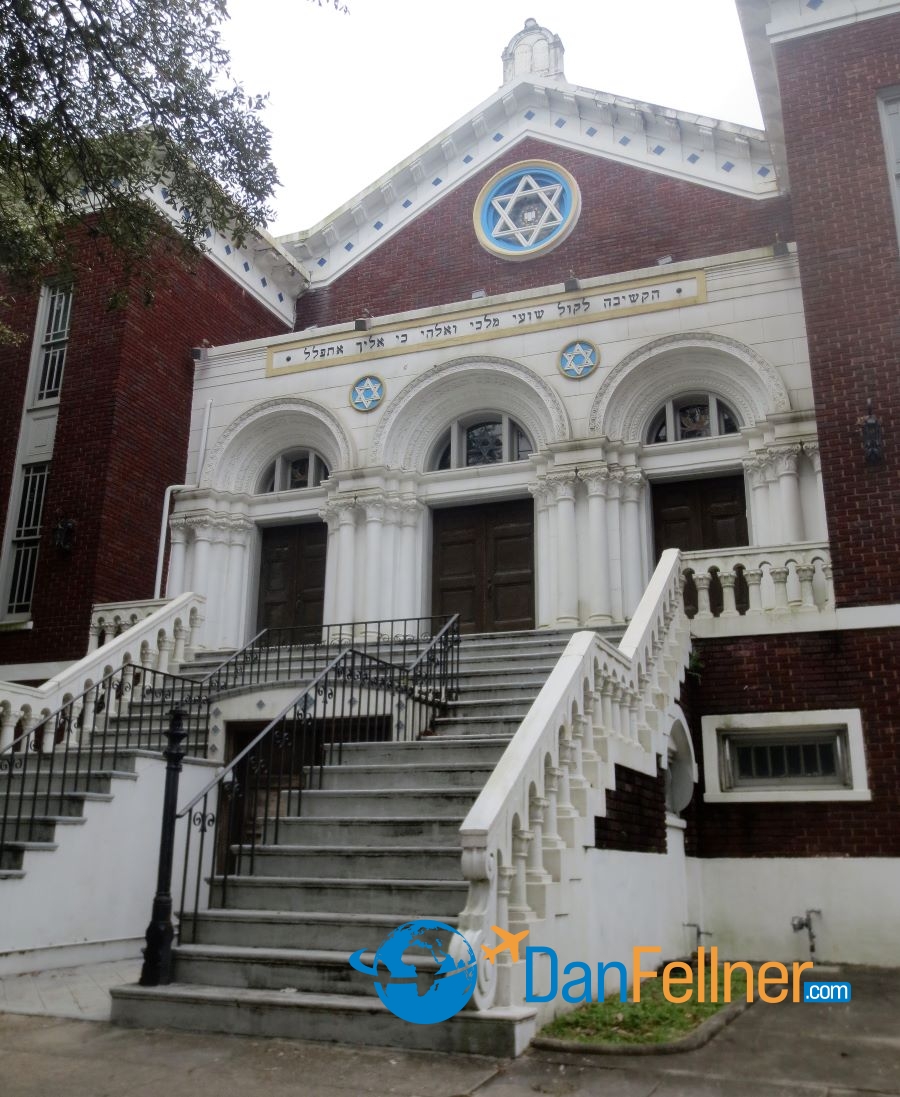
Anshe Sfard Synagogue, a National Historic Landmark, is New Orleans’ oldest functioning synagogue.
Fielkow, a former two-term New Orleans city councilman and executive vice president with the New Orleans Saints football team, assumed the reins of the Jewish Federation in 2017. Fielkow told me he is especially proud of the role the Federation has played in helping to rebuild the Jewish community since Katrina — one of the worst natural disasters in U.S. history — ravaged the city more than 13 years ago.
Before the storm hit, about 10,000 Jews lived in New Orleans. Fielkow says that number shrunk dramatically – down to about 3,000 – 4,000 – in the years following Katrina. But now, thanks in part to several Federation initiatives, the Jewish population has actually swelled to about 11,000, higher than pre-Katrina levels.
“Since Katrina, we’ve added a lot of younger Jewish people that came to either help with the rebuilding process, or to enter one of the new fields that have grown since Katrina,” says Fielkow. “It’s very much a hybrid of new and old and it’s an exciting community to be a part of.”
Fielkow says one of his priorities has been to further enhance relations with the city’s large African-American population, which comprises about two-thirds of its residents. He says Jews have a “very close connection” with the city’s Black residents, dating back to the civil rights movement of the 1960s. He adds that due to the city’s rich diversity, Jews have encountered little anti-Semitism.
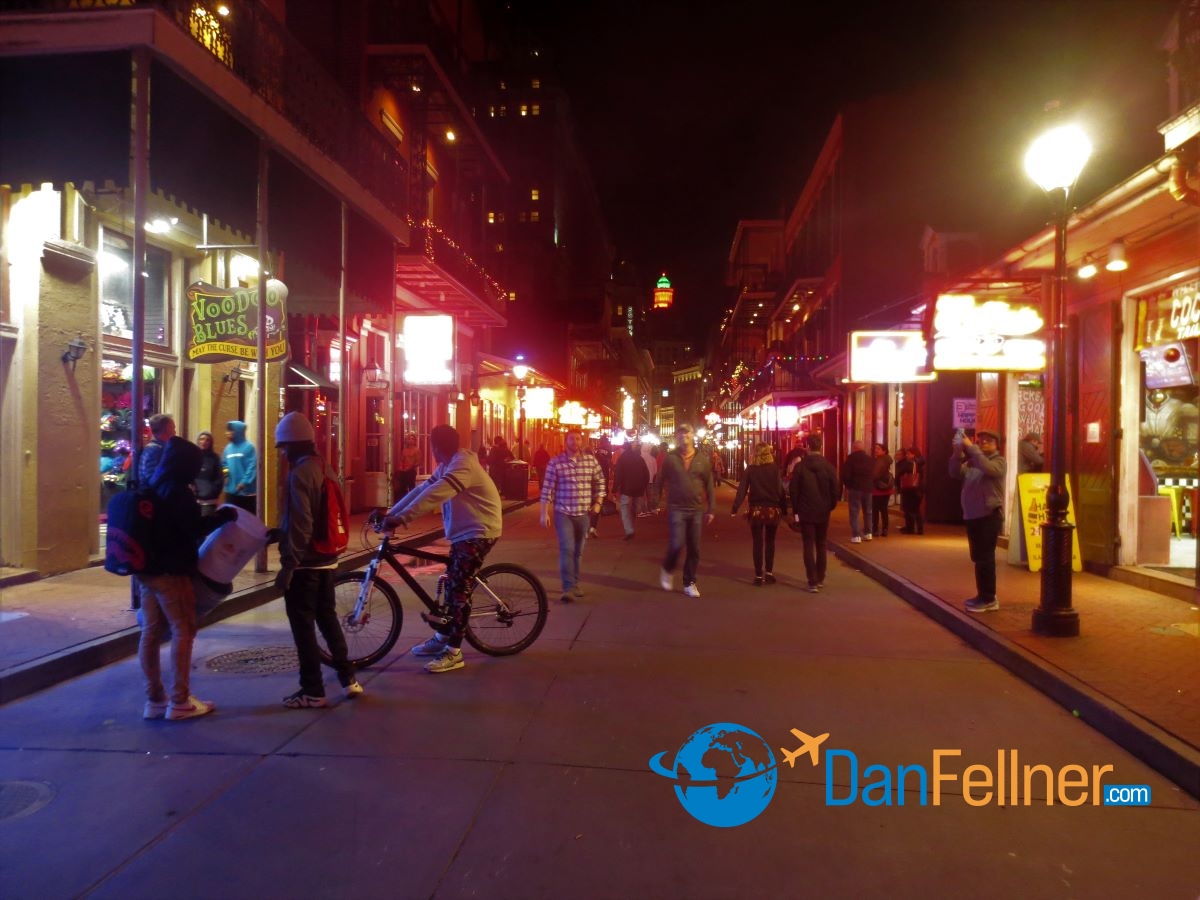
New Orleans’ famed Bourbon Street.
“We’re not a traditional deep-South city,” he says. “New Orleans is unique in that it has a French and Spanish background to it. It has a Cajun and Creole connection to it. It’s very different from a Montgomery or a Birmingham (Alabama) or one of the more traditionally thought-of Southern cities. In our community, we have a great tolerance and a great diversity and get along very well together.”
The first Jews arrived here in 1757, only a few decades after the city was founded. The Jewish population started to grow after the Louisiana Purchase in 1803, with most settlers arriving from the Alsace region of France. Jews became successful merchants and active in politics. In fact, Louisiana elected a Jewish lieutenant governor and attorney general in the 1850s. Most Jews in 19th century New Orleans, however, were not religious and intermarriage with the local Catholic population was commonplace.
In the 19th and 20th centuries, Jews opened successful retail stores in the downtown part of the city and synagogues were constructed to meet the religious needs of the growing community. One of the synagogues, Anshe Sfard, was founded by Hasidic Jews from Lithuania in the mid-1920s and still exists as a Modern Orthodox congregation. Located at 2230 Carondelet St., it’s the only synagogue within walking distance of downtown New Orleans. It took me about 45 minutes to walk to Anshe Sfard from the French Quarter to a section of the city known as the Garden District.
With a beautiful exterior marked with triple-arched Neo-Byzantine doors, Anshe Sfard has been designated a National Historic Landmark. While the synagogue was forced to close for several months after Katrina, its Torah Scrolls were saved. Visitors are welcome for Shabbat services Saturdays at 9:30 a.m.
Many of New Orleans’ Jews have recently moved to a western suburb called Metairie, which is home to a Jewish Community Center, two Jewish schools and several congregations. It’s also where Joel Brown, who was born and raised in New Orleans, decided 30 years ago to open a kosher grocery store, which has since expanded to a restaurant and Judaica shop.
At the time, there were no kosher restaurants in the city and Brown saw a business opportunity which has “grown beyond my wildest dreams.”
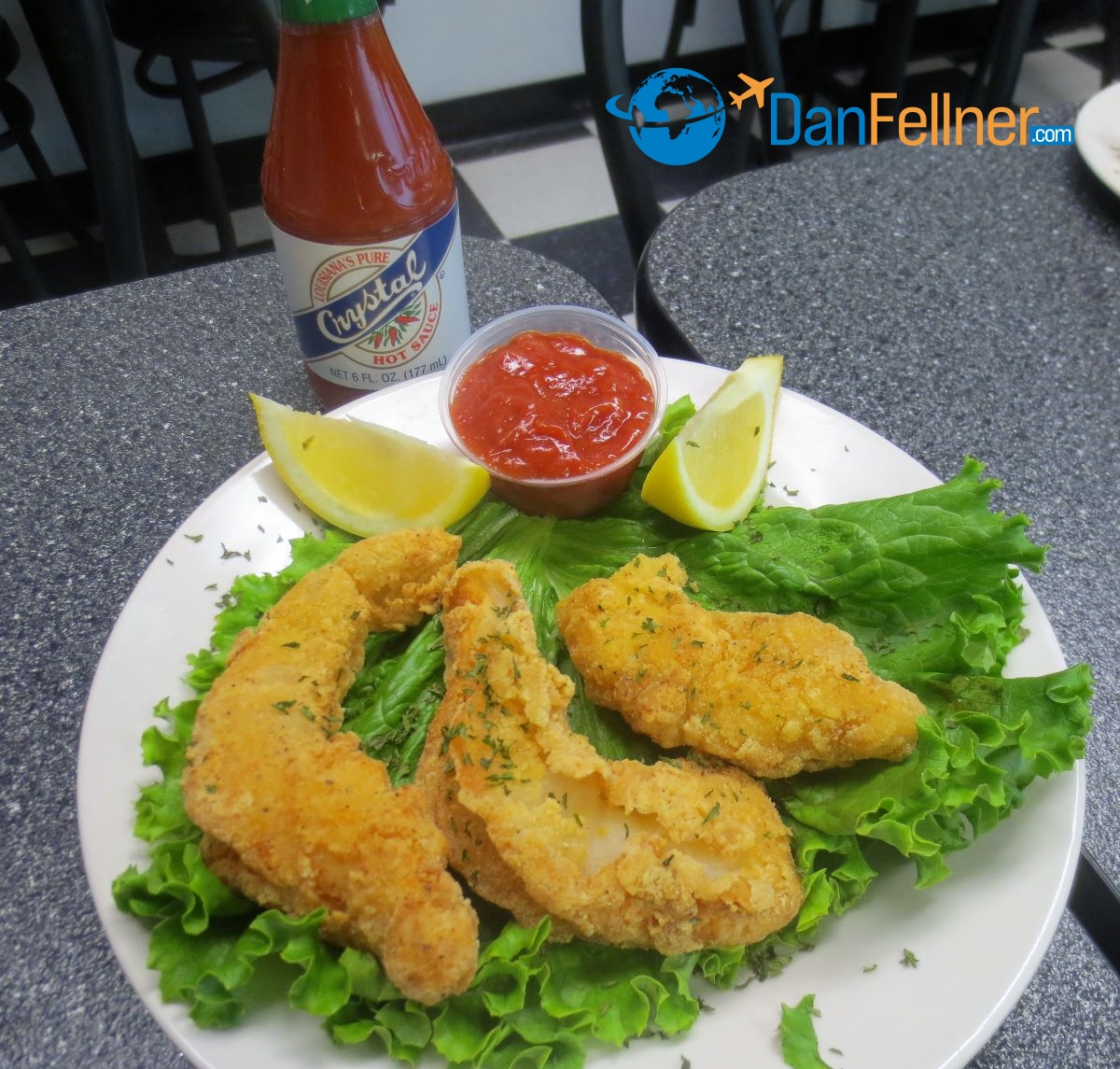
Alaskan pollock meant to look like Cajun shrimp at the Kosher Cajun Deli in Metairie, La.
Today, the Kosher Cajun Deli and Grocery has become a central meeting place for the Jewish community and a popular attraction for out-of-town visitors – both Jews and non-Jews alike. Like any astute businessman, Brown was looking for a way to give his restaurant a unique twist. That’s why he decided to add to the menu kosher dishes called “New Orleans Favorites.”
“Visitors coming from all over the country would say, ‘We have great New York deli. We want something different. We want your specialty foods that New Orleans is known for,’” says Brown.
So Brown now serves such dishes as chicken and sausage jambalaya (made with kosher chicken and beef sausage), red beans and rice, and a popular local specialty called a “po-boy” sandwich.
“It is Alaskan pollock fish that is formed like shrimp,” he says. “We bread it with different seasonings, we fry it, put it on a toasted sub-roll with an excellent cocktail sauce. And it’s very, very popular.”
All of the meat Brown serves is Glatt Kosher under the supervision of a rabbi with the Louisiana Kashrut Committee. Brown has also carved out a niche as a leading supplier of kosher foods to conventions and the many cruise ships that depart out of New Orleans, including the ship I was on – the American Duchess.
“We’re a one-stop kosher food shop, restaurant, grocery, deli, Judaica shop, with (sports) memorabilia all over the walls,” says Brown. “We’ve become sort of a Jewish Chamber of Commerce.”
New Orleans has a reputation as a party town with a wild nightlife. But for Jewish visitors, it offers much more – a chance to experience a growing and vibrant Jewish community in a place many wouldn’t expect to find one.
Adds Fielkow, who moved with his family to New Orleans in 2000: “We were Yankees from the Midwest and immediately fell in love with everything about New Orleans – its food, its music, its architecture, but most importantly, its people. I think this is the greatest city in the world and I urge everyone to come down and enjoy the hospitality.”
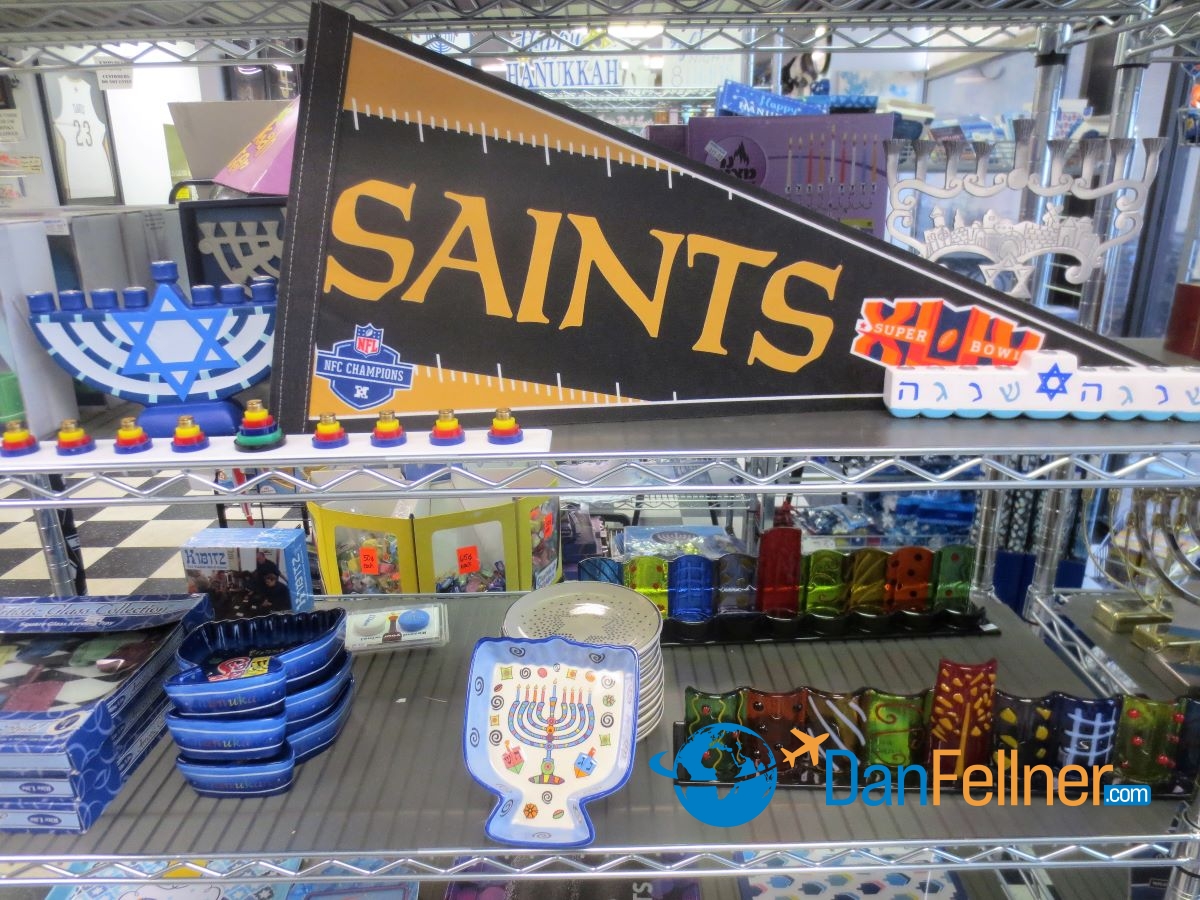
© 2019 Dan Fellner

